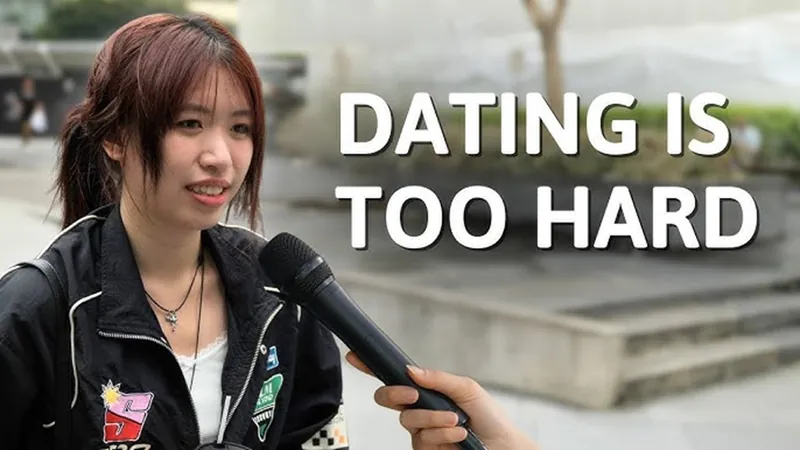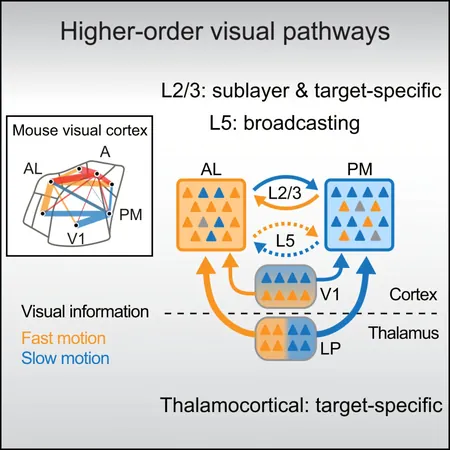
Why Young Singaporeans Are Choosing to Stay Single: A Deep Dive Into Modern Dating Trends
2024-12-16
Author: Mei
SINGAPORE: A captivating new survey conducted by the widely recognized YouTube channel Asian Boss has unveiled an intriguing trend among young Singaporeans—they are opting to remain single, primarily by choice.
In a series of heartfelt street interviews, participants expressed that they are in no rush to enter romantic relationships. Instead, they are prioritizing personal growth, education, and constructing a solid foundation for their futures. One interviewee succinctly put it, “I’d rather ‘youth it out’ first before diving into a relationship.”
This sentiment was echoed by others who stated they are occupied with career development, achieving financial stability, and relishing their independence. The consensus appears to be that relationships are not essential at this stage in their lives.
When asked about their ideal age for settling down, most participants indicated they would consider starting a family in their late 20s to early 30s. “Around 30 sounds reasonable to me,” one respondent remarked. “You complete your studies, gain work experience, and your income usually becomes more stable by then.”
Contrastingly, one male participant shared a different viewpoint, expressing a desire to find a partner sooner. He admitted, “I definitely wouldn’t want to grow old alone. The thought of navigating adulthood without a companion can be pretty daunting.”
Societal Pressures to Find a Partner
Interestingly, despite their preference for singleness, many young Singaporeans still feel the weight of societal and familial expectations to find a partner. A female participant highlighted government initiatives, like the Build-To-Order (BTO) housing scheme, which encourages young couples to pair up and settle down.
“There’s definitely some pressure from my family,” she noted. “In Singapore, the societal context adds a layer of urgency, partly due to measures like the BTO that seem to accelerate relationships.”
Further emphasizing this ambivalence, when asked to rate the importance of dating on a scale of 1 to 10, several participants gave it a moderate score of “5.” One participant explained, "It’s just not at the top of our priority list right now. We have so many other things to focus on."
Skepticism Towards Dating Apps
The conversation also shifted towards dating apps. Most participants expressed skepticism about finding serious relationships through these platforms. While acknowledging the convenience of meeting new people, they felt these apps cater more to casual encounters than genuine connections.
“Most people on dating apps are looking for something casual. They might just be feeling lonely or seeking a fleeting connection,” said one participant. However, they clarified they don’t judge those who use such platforms, recognizing them as just another route to meet potential partners.
The Local Dating Scene: Size Matters
Delving into the local dating pool, some interviewees noted its perceived limitations, stating they often recognize mutual friends or past partners among their matches. Nevertheless, there was a general agreement that finding someone compatible in Singapore is still relatively feasible.
“I believe there are good people all around,” one person remarked. “Yet, there seem to be fewer communal spaces to foster connections, which might limit our chances of bumping into someone special.”
Another participant added, “You can find someone if you’re willing to put yourself out there and engage with as many people as possible. Just be friendly and patient—the right person will come when the time is right.”
Growing Acceptance of Interracial Relationships
As for interracial dating, the overwhelming majority conveyed that society has evolved to become increasingly accepting. Today’s youth, they believe, care less about racial backgrounds when seeking out relationships.
“One of my partners was from a different ethnicity, and I’ve generally found acceptance from friends and family,” said one participant, reflecting on their own experiences. Another added, “Though some stigma may persist, it’s fading. Social media has helped normalize these relationships, making it clear that love knows no bounds.”
As the conversation about love evolves among Singapore’s youth, one thing is clear: while romantic ties may not be high on their agendas, the exploration of personal identity, independence, and societal structures continues to shape young Singaporeans' perspectives on dating and relationships.
This growing trend of valuing personal development over traditional relationship timelines may lead to significant changes in Singapore’s social landscape in the years to come.


 Brasil (PT)
Brasil (PT)
 Canada (EN)
Canada (EN)
 Chile (ES)
Chile (ES)
 España (ES)
España (ES)
 France (FR)
France (FR)
 Hong Kong (EN)
Hong Kong (EN)
 Italia (IT)
Italia (IT)
 日本 (JA)
日本 (JA)
 Magyarország (HU)
Magyarország (HU)
 Norge (NO)
Norge (NO)
 Polska (PL)
Polska (PL)
 Schweiz (DE)
Schweiz (DE)
 Singapore (EN)
Singapore (EN)
 Sverige (SV)
Sverige (SV)
 Suomi (FI)
Suomi (FI)
 Türkiye (TR)
Türkiye (TR)